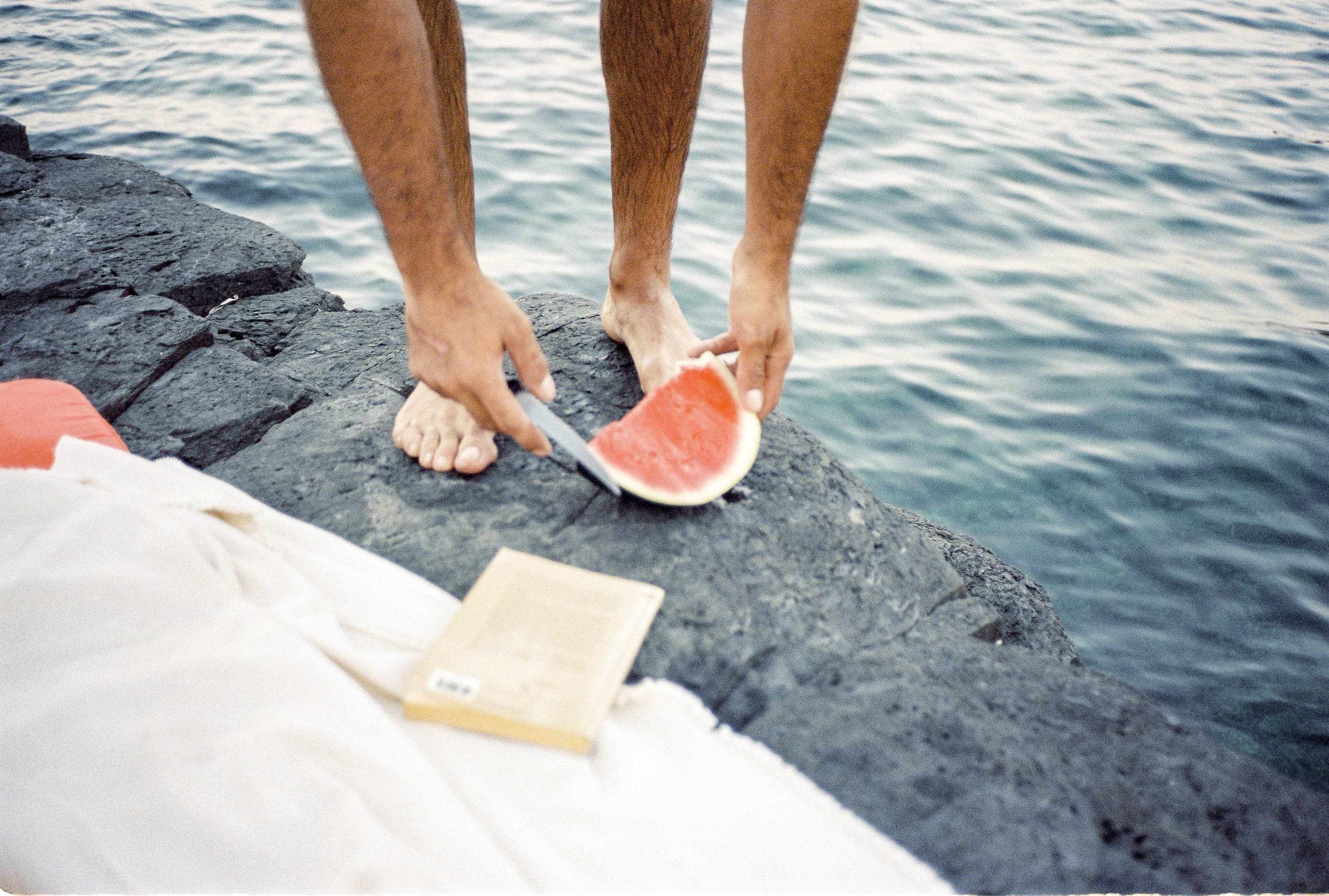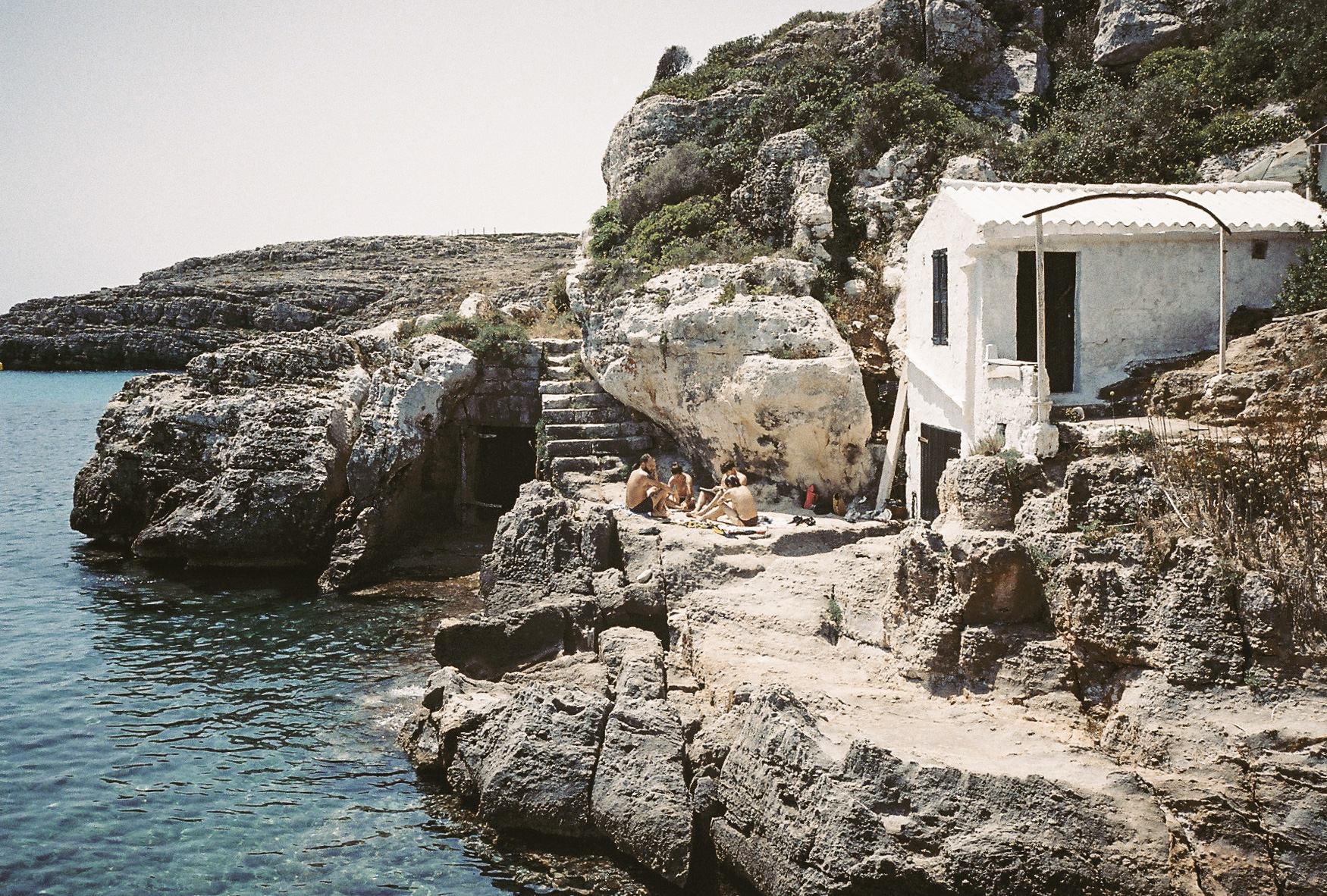- About
-
Discover
City Guides, Tour Guides, Insider's Guides
-
Experience
Book your next trip
-
Lab
Book the digital Experiences
-
Hidden Gems
Hotels. Restaurants, Bars

Editor: Elisa Carassai
Curator and Photographer: Cecilia Renard
Beautiful beaches, unspoilt nature, turquoise water and sustainable tourism: all you need to pack for your trip to Menorca is a mighty dose of adventure.
Popular with hikers and sporty types, Menorca, also known to many as the mellow-est of the Balearic islands – and the easternmost sister to Ibiza, Formentera and Majorca – is a sleepy, hazy dream of an island.
Bypassed by mass tourism, it is a place of calm and charm, full of hidden coves, untouched coastlines and deep gorges, or barrancs, where you'll find some of Europe's rarest flowers. Curiously shaped by a separation from the continental coastline with plate tectonics, the beauty of Menorca lies in the richly diverse vegetation and its differently coloured beaches.
The island has been quietly encouraging sustainable tourism for years, long before it became fashionable. Its gentle landscapes are ideal for activities such as walking, cycling or riding – with no scary sharp inclines for those of us who are not super fit.
It is a place where you’ll find quirky vintage boho-style locally-owned shops and tiny quiet fishing villages full of welcoming locals.
Although the island is most popular during its hottest months, July and August, we suggest going during the off-season in May or June, as the island is beautiful in early spring when the almond blossom is out. We wouldn’t advise going in September or in autumn, as it may rain.
Dotted by white-sand beaches, the eastern coast of Menorca is where you’ll find Mahòn, its capital city. A town characterized by mellow old buildings, stylish tiny shopping boutiques and full of lazy seafood lunch spots, such as Mestre d’Aixa, by the biggest port - Mahon is known to host one of the largest natural harbours in the world. Our guide, Cecilia Renard, also recommends paying a visit to La Cereria, a candlemaker turned eco-friendly fashion boutique. Also, home to some great spots for tapas and drinks, such as Vida Una, a vermuteria, this town by the sea also enjoys a moderate amount of nightlife, through the organization of wonderful concerts. An unmissable spot for drinks and dancing? El Claustre, an amazing concert spot hosted in a former nunnery, where Rosalia performed once!
If you’re looking to stay in the capital city, our guide’s favourite hotels include Jardí de ses Bruixes, a stylish boutique hotel located in the historical centre of the capital and Casa Ládico, another boutique hotel – an appealing alternative to the island’s large-scale beach hotels.
We also suggest paying a visit to Binibeca Vell, a cute little fisherman’s village characterized by its pristine white houses and its tranquil environment, full of locals. Here you’ll be able to find one of our guide’s favourite shops, Local 23. Like La Cereria, Local 23 is distinguished by its selection of eco-friendly and sustainable dresses and accessories in boho-chic style, a favourite amongst lovers of the typical ‘ibizenco’ look.
The best beaches of the East Coast happen to be hidden away in coves which you can only reach by foot or by boat. One of these is Cala Rafalet, a small cove surrounded by towering cliffs where it seems that even the sea comes here to hide from the rest of the world. It is a magical yet mysterious place, surrounded by a magnificent oak grove that adorns the environment. One of the East Coast’s most unique beaches is Cala Coves, a double bay that can only be reached on foot that hides an ancient necropolis carved into the rock. Last but not least, Cala Presili is a medium-sized pristine sandy beach which opens to a wide turquoise bay with the picturesque Favàritx lighthouse on the left. It can be reached by foot through the Camin de Cavalls, a road often travelled by hikers who want to experience the island by foot, a beautiful path that encircles the perimeter of Menorca, great for exploring beaches by foot, bike, or horseback.

As mentioned before, the beauty of Menorca also lies in its different coloured beaches, a colouring caused by the breaking of the tectonic plates. And the North Coast’s beaches are denoted by a reddish colouring, which could remind some of the particular colourings of some clay tennis courts. First up is a trip to Cala Tirant, whose clear waters, brown sand with panoramic views towards the north coast, and the lighthouse at Cap Cavalleria, guarantee a breathtaking experience. A pristine beach of soft red sand, accompanied by turquoise waters and brown rocks: this is Playa Cavalleria, one of the most evocative and beautiful beaches in Menorca. Located about 9 kilometres from Es Mercadal, between Punta des Vernis and de Ferragut, the Playa is completely protected by the imposing Cap de Cavalleria, the northernmost headland of Menorca, with cliffs up to 80 metres high from which you can enjoy spectacular panoramic views. One of the best-known beaches of Menorca is Cala Pregonda, this beach is also known as the red cove of Menorca, because of its clay sand. Reachable either by sea or by taking a twenty-minute walk from Binimel Beach, down a small path (which happens to be part of Camin de Cavalls) that runs a few steps down the coast, once you’ll reach the beach you’ll be greeted by a stupendous view: crystal clear waters, fine white sand and a surrounding lush pine forest.
Sports lovers will also enjoy renting out a kayak or paddle in order to reach Fornells Bay. A calm, sheltered bay, which will enchant you with its varying landscape consisting of green forests, small islands, rugged cliffs and pristine sand beaches. One of our guide’s favourite locations is Cavalleria Lighthouse, the perfect place to enjoy the sunset, watching the sun melt away into the sea.
We recommend stopping by in Fornells for dinner, there are plenty of beautifully cosy places such as Ca Na Marga, which serve one of the typical plates loved by locals in Menorca: the caldereta, a lobster soup.

On the west coast, you’ll find Ciutadella, the old capital of Menorca. A very charming little city, with a lovely port, the city is characterized by its various examples of Baroque and Gothic architectural churches. A delight to explore, it will bewitch you with its enigmatic little labyrinthic alleys and streets. As our guide is particularly fond of lighthouses, another stop along the road should be at the Punta Nati lighthouse, a place where you’ll find absolute peace and quiet, erected in a very arid and captivating landscape.
If you’re looking to stay in Ciutadella, our guide suggests either staying at Can Faustino, a remodelled charming 16th-century palace located in the heart of the historic centre of Ciutadella, which opens onto an interior patio with olive trees and bougainvillaea; or Hotel 3 Sants, an original hotel which occupies an artfully converted 18th-century mansion in the heart of Ciutadella's historic centre.
One of the few historical landmarks in Menorca is Lithica, an area of mares quarries located 1km away from Ciutadella. Stones and vegetation live together creating organic forms and different environments, and there is a maze which looks impressive from above. Forming a cubical amphitheatre, the area is now used for the organization of arts and culture events, and concerts are often held there in the summer.
On the west coast, you’ll find plenty of beaches and secluded coves that are great for snorkelling, swimming and cliff jumping. Cala Forcat is one of them. Located within a deep inlet and set on a dramatic coastline of rugged rocks, this particular cove is perfect if you want some privacy and want to lie on one of its numerous concrete bathing platforms. Cala Talair is a quite small beach as well, and can only be reached by foot. You can either get to it by walking from Son Saura parking space, once again walking through the Camí des Cavalls – a beautiful experience for the ones who want to observe and be close to the beach/coastal landscape. Ultimately, Cala Turqueta is a tiny hotspot beloved by many in Menorca. Because this beach is so small and quite popular, it’s best to go early in the morning to find a parking spot nearby. It is a picturesque bay beach featuring a sandy white shoreline and clear blue waters for swimming.

Last but not least is the southern coast of Menorca.
Located on the southern side of the island in between Cala Galdana and Cala Trebalúger, Cala Mitjana is considered to be one of Menorca’s most beautiful beaches, an open clear blue cove with high cliffs on either side offering a fantastic view. The neighbouring Cala Mitjaneta can be reached on the western side of the beach via a short track or swimming. Nearby, you’ll also find Cala Trebalúger. The difficulty in reaching it turns it into a scarcely visited beach, perfect for those searching for peace while taking a swim in its clear waters. It opens out at the end of a deep gorge and the western side has a tiny stream flowing towards the sea. Located between Punta de Sant Antoni and de s'Avi, Cala Escorxada belongs to the Àrea Natural d'Especial Interès which goes from Cala Mitjana to Binigaus. This coastal stretch has cliffs that rise up to 40 metres above the sea level, with sea inlets that are the origin of isolated, virgin and beautiful coves. Finally, Binigaus, is a cove that is totally open to the sea, a coast characterized by being a very long beach of white sand and crystal clear waters located west towards Sant Tomàs.
Craving cocktails overlooking the sea? Our guide suggests paying a visit to Cova d’En Xoroi, a small cave located on the south coast of the island, where you can now have an aperitif from morning to night contemplating the magical views.